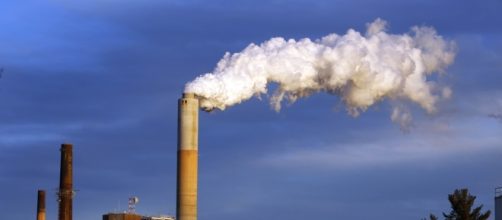US President Donald Trump called global warming a Chinese joke. There is a real possibility that the USA is going to abandon the Paris Climate Agreement.
This issue Concerned Scientists who note that the American withdrawal from the agreement is likely to exacerbate the problem of global warming. Calculations suggest that carbon dioxide emissions could increase by an additional three billion tons per year, Independent writes.
Simulation of the worst scenario
Year-to-year increments could cause glacial melting, increase sea levels, and stimulate extreme weather.
One group of scientists carried out the simulation of the worst scenarios of the American decision to reduce carbon dioxide and came to the conclusion that by the end of the century the United States would cause heat to rise by about 0.3 degrees. Although not everyone agrees about the level of warming as a result, everyone agrees that the result will be a warming of the Earth.
On Saturday, Trump wrote on Twitter that he will decide this week whether to support the Paris Climate Agreement.
Scientific data is pretty clear
Whatever Trump thought, the scientific data is pretty clear. According to the fourth report of the Intergovernmental Panel on Climate Change in 2007, the global carbon dioxide concentration in the atmosphere increased from 280 ppm (ppm - the greenhouse gas molecule's share in one million molecules of dry air) in the pre-industrial age to 379 ppm in 2005.
The highest rate of carbon dioxide concentration was measured in the period from 1995 to 2005. The global atmospheric concentration of methane and nitrogen oxide increased from 715 and 270 ppb (ppb - greenhouse gas molecules in billions of molecules of dry air) in preindustrial age to 1774 and 319 ppb in 2005. According to the 100-year series of measurements (1906-2005), the rise in global ground air temperature, estimated from the linear trend, was 0.74 °C.
In the last 50 years, growth over the entire 100-year period is doubling, contributing to the fact that since there are instrumental measurements of air temperature (1850) the coldest years were in 1998 and 2005 and then in 2002, 2003 and 2004.
The warming of the Earth is of global character, but not droningly in all parts of the Earth. Thus, warming of land masses is higher than ocean warming, especially in the post-1970 period. Therefore, due to the distribution of land and sea on Earth, the warming is more pronounced in the north than on the southern hemisphere with twice the increase in the average air temperature in the Arctic in relation to global warming back to 100 years, according to the DHMZ website.


